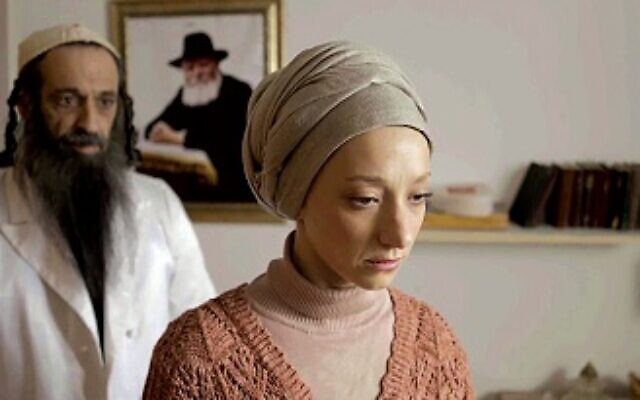AJFF: Barren
The Atlanta Jewish Film Festival returns for its 23rd anniversary with a slate of compelling, emotional and thought-provoking films.
This profoundly emotive, deep-dive study of a couple navigating possible infertility issues, a Jerusalem Film Festival Best Israeli Film nominee, is a heart-wrenching examination of morality and social values among the ultra-Orthodox in Israel. Faigi, lovely, delicate and meek, and Naftali, both in their early twenties, live with his parents in Tzfat, known for its predominant Haredi community. The parents became religious later in life, after years in the secular world. Their transformation seems to have hardened their expectations of their son and his wife, the latter of which fiercely desires not to be under the yoke of her commanding, tough-as-nails mother-in-law.
In Faigi’s world, her status as a woman without a child after four years of marriage, is deemed problematic by everyone. With her parents living in America, she’s lonely and isolated, except for when she works in a Judaica shop, interacting warmly with the shop’s owner, and speaking excellent English with tourists.
That they must wait for their own home until they have a baby, as Naftali tells Feigi, is a dream that to date is sadly and vexingly out of reach. The attendant at the mikvah Faigi visits monthly urges her to seek medical treatment, advice she rebuffs. Likewise, preferring to put faith in prayer, Naftali deals with their problem by traveling to Uman, Ukraine for Rosh Hashana, to pray at Rabbi Nachman’s tomb.
During Naftali’s absence, his father invites a guest, Rabbi Eliyahu, for the holiday. The rabbi’s vague answers about his origins and claims of healing powers that he says can help the infertile couple, presage a dark turn. He speaks compellingly to the troubled young wife, conditioned to obey powerful men and to believe in spiritual healing over modern medicine.
Predators can easily exploit the faith and passivity of women like Faigi, and a calamity both familiar and unique plays out in the rest of the film. Who is the biggest criminal here: the elusive rabbi? the hardened mother-in-law? the namby-pamby father-in-law? Faigi’s immature husband Naftali? Or is it “Jewish law above all” as decreed by a tribunal of rabbis that debates the turn of events? Doctrines of faith, social norms, and mutual trust or the lack thereof are among the thorny issues raised by this superbly crafted, utterly sensitive, and wholly engrossing film.




comments